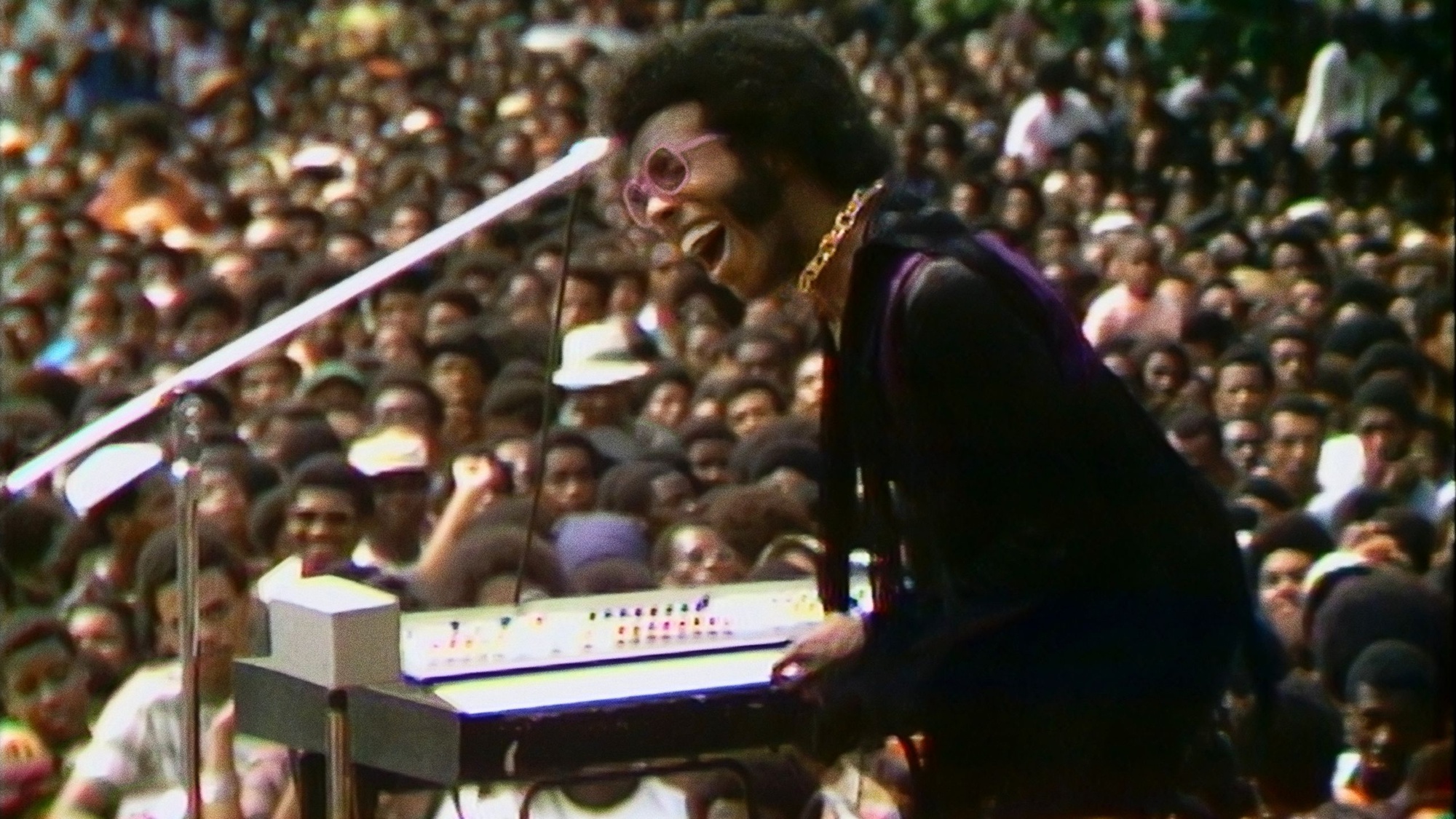
News
HMS Is Facing a Deficit. Under Trump, Some Fear It May Get Worse.

News
Cambridge Police Respond to Three Armed Robberies Over Holiday Weekend

News
What’s Next for Harvard’s Legacy of Slavery Initiative?

News
MassDOT Adds Unpopular Train Layover to Allston I-90 Project in Sudden Reversal

News
Denied Winter Campus Housing, International Students Scramble to Find Alternative Options
'Summer of Soul' is Revolutionary
5 Stars — Dir. Ahmir “Questlove” Thompson

“Do you remember the Harlem Cultural Festival that summer of 1969?,” asks self-proclaimed “Harlem Ambassador” Musa Jackson from a dark, empty room.
The festival in question was a series of concerts held in Harlem, New York City, during the summer of 1969 — a jubilant testament to Black music, culture, and pride. Attendance stood at a staggering 300,000 people, and the festival took place only 100 miles south of the now-iconic Woodstock Festival in upstate New York. As is true for Woodstock, the entire Harlem Cultural Festival was immortalized on video, but filmmaker Hal Tunchin's historic footage went unreleased for over 50 years.
“Summer of Soul (...Or, When The Revolution Could Not Be Televised),” the directorial debut of Ahmir “Questlove” Thompson, is a documentary that tells the untold story of that festival, featuring never-before-seen performances from some of the most iconic artists of the ‘60s, including Stevie Wonder, Nina Simone, Sly & The Family Stone, and The 5th Dimension.
The film, which had its world premiere as the opening feature of the 2021 Sundance Film Festival, is itself a revolution. Thompson’s directorial vision is ever present in his treatment of the festival and its historical context, as he partakes in reclaiming a history once willingly left forgotten.
As Tulchin himself says in the film, “Woodstock was the same year, and Woodstock got all the publicity ... nobody cared about Harlem.”
And yet, “Summer of Soul” is not only a collaboration between Thompson and Tulchin, but also between the cultural movements of the '60s and present day. Thompson draws undeniable parallels between today’s Black Lives Matter Movement and the Civil Rights and Black Power movements. As Thompson said in an interview with the Hollywood Reporter, “the circumstances that caused the concert to happen back in 1969 were starting to happen in 2020.”
It's fair to say that Thompson brings about a sense of transformation for the concert film genre. He engages with the original footage not as a typical concert film, but as an entire essay dedicated to the Harlem Cultural Festival and its roots in a critical time for Black America. “Summer of Soul” expertly juxtaposes the joyous energy of the sunlit festival with scenes depicting the traumatic realities its performers and attendees were subject to in a country built on systemic racism. In doing so, Thompson calls upon the fact that music doesn’t exist in a vacuum. It never has.
In one of the film’s opening scenes, for example, a fierce drum solo by 19-year-old Stevie Wonder and colorful scenes of the festival’s massive crowds are interlaced with found footage of the Black Panthers, civil rights activists, and other freedom fighters to create a powerful montage. As one festival attendee says, “music was changing and revolution was coming together.”
It's remarkable that in a city filled with towering skyscrapers, the filmmakers never lose sight of the central community in Harlem. Most of Tulchin’s shots focus almost exclusively on the crowds of Black people and the musicians playing to them, never lifting their frame to include what was beyond the trees encircling the Harlem Cultural Festival. The footage (shot entirely in bright natural light due to the virtually nonexistent budget) depicts the festival as idyllic and euphoric.
In the film, there is a sense that Thompson is reclaiming a piece of indelible cultural history. By including attendees for whom the Harlem Cultural Festival was a life-altering moment, Thompson gives the story back to those who built and forwarded it: the Black community and the neighborhood in Harlem. One can see this with the quality of the original concert footage — which was damaged in places, colored with an orange haze or pink streaks. But the surface damage only adds to the film’s originality — an authentic commitment to a cultural history being reclaimed and retold.
A musician himself, Thompson gives new life and meaning to the songs and genres showcased that summer in Harlem, which included everything from jazz to gospel to motown and blues. Each performance is carefully coordinated to shed light on one of the many sociocultural issues the film engages with — whether it was contextualizing Nina Simone’s flaming performance of “To Be Young, Black, and Gifted” as a way to bring up segregation in schools or South African trumpeter Hugh Masekela’s performance of “Grazing in the Grass” as a way to call attention to the pervasive and “common struggle” of anti-Black racism across the globe — and the result is captivating.
Out of one revolution, Thompson crafts another — weaving stories, cultural phenomena, political movements, iconic performances, and intimate footage from a summer spent celebrating Blackness into a must-see film and stunning directorial debut.
— Staff writer Sofia Andrade can be reached at sofia.andrade@thecrimson.com. Follow her on Twitter at @SofiaAndrade__.
Want to keep up with breaking news? Subscribe to our email newsletter.
